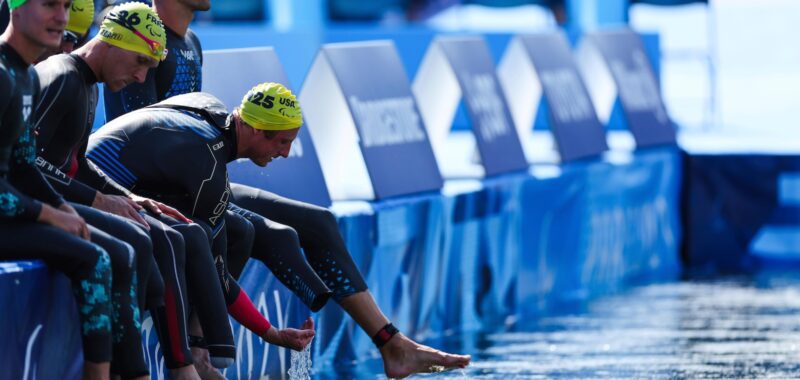PARIS — Some Paralympians live with a disability all their lives. Carson Clough is not one of those people.
Clough played lacrosse for North Carolina and knew nothing about the Paralympics until he was involved in a 2019 boating accident that required a below-the-knee amputation of his right leg.
He’s one example of many among the 4,000-plus athletes at the Paris Paralympics who came to have a disability later in life or only learned of the Paralympics when they were adults. For them, para sport has offered a new direction and sense of purpose to their athletic careers.
In early 2022, with no previous knowledge of the sport, Clough was invited to apply to a talent ID camp hosted by USA Triathlon. It was there that he met his current coach, Mark Sortino, a long-time assistant coach for Team USA’s Paralympic Triathlon team.
When he began training, Clough admits, jumping into an entirely new sport was a difficult process, and one that he made a lot harder on himself by thinking he knew more than he did.
“It was: Think I know a lot about the sport, and do not as much listening,” Clough said. “My Coach, Mark Sortino, was obviously very experienced. He just kind of let me fall into my own trap and learn.”
Monique Matthews’ Paralympic career, meanwhile, began with a brochure.
Matthews had grown up a three-sport athlete, competing in softball, basketball, and track throughout high school. Her plans at the time revolved around whether she should head to college for softball, or join the military.
While working a summer job at Circuit City, her plans went out the window when a warehouse accident cost Matthews her left foot.
After the incident, Matthews took a two-year hiatus from sports, unsure where her life would go from there. That was until, by chance, she discovered a way that she might be able to compete again.
“After my amputation, I was looking for a new prosthetist, and I was up in Oklahoma City, and they actually had a brochure at Scott Sabolich for sitting volleyball,” said Matthews. “I emailed them and asked for a tryout, because I had never heard of the Paralympics before that.”
She not only made the team, she’s now got four Paralympic medals.
For Clough, after becoming more comfortable in the three aspects of triathlon, he quickly put his months of training to use.
In June 2022, he finished eighth at the World Triathlon Para Cup Besancon. This result set him up for a series of World Triathlon races which would eventually lead him to take first in the 2024 Americas Triathlon Para Championships in Miami in March, qualifying him for the Paralympics.
After this first intense run of competition, Clough centered his focus on putting in the work for Paris.
“For the past four months it’s just been actually listening to everything (Sortino) says, because he, as well as my manager and all the coaches, they know what they’re doing. I have no idea what I’m doing.”
The result? Clough ended up medaling in his first ever Paralympic race, taking silver in the PTS4 class for athletes with affected coordination on one side, or the absence of limbs.
As he enjoys this accomplishment, he’s already looking ahead to future competitions, including the 2028 Paralympics in Los Angeles.
“You know everybody says, ‘it never gets easier, you only get faster,’ but I’m gonna prove them wrong,” he said “I’m gonna make it easier.”
Like Clough, Matthews sees a message in their stories.
“A lot of times when you’re injured, you just think you’ve got to find a new path, you can’t do athletics anymore,” she said, “but then they see this and they’re like ‘Wow, I can continue to grow even better as an athlete.’”
__
Anna Licastro is a student in the John Curley Center for Sports Journalism at Penn State.
—
AP Paralympics: https://apnews.com/hub/paralympic-games

